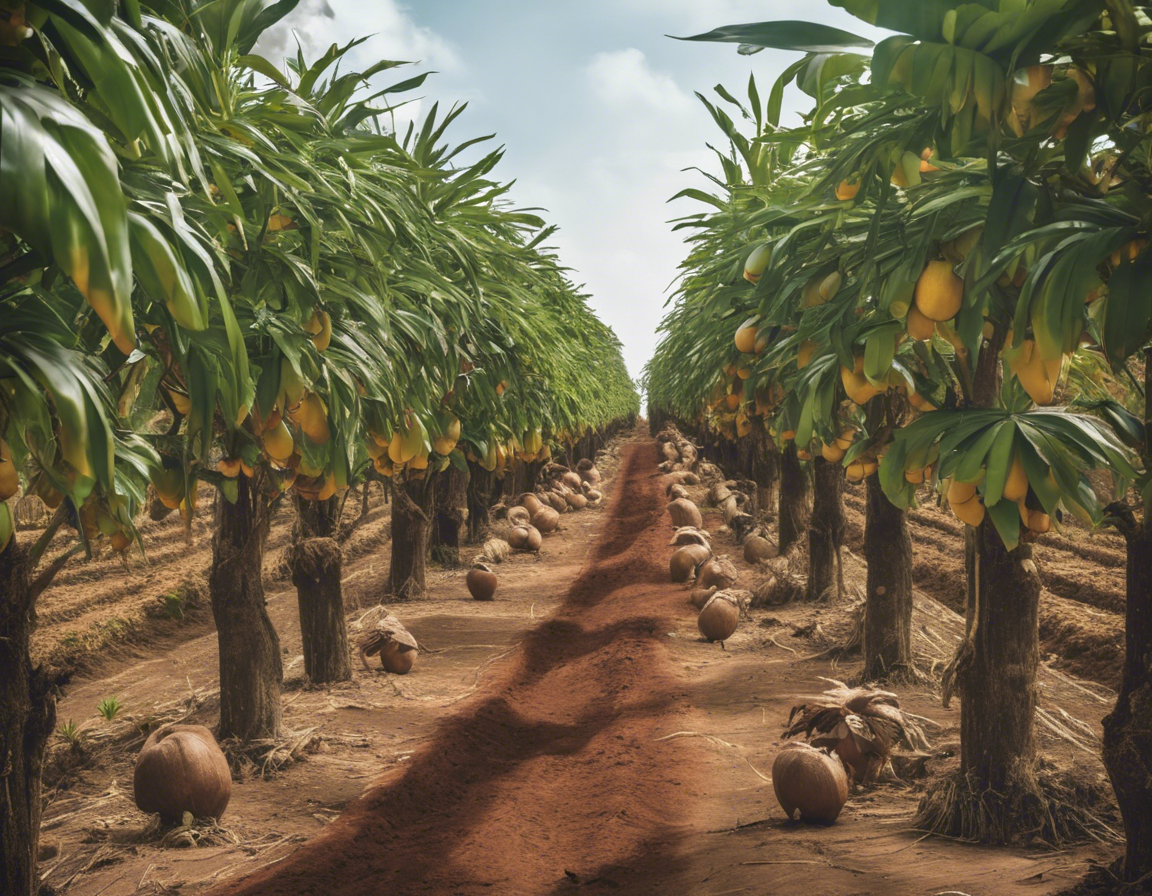Introduction
Coco Farms is setting a new standard in the agricultural industry by implementing sustainable practices that focus on environmental conservation, social responsibility, and economic viability. By prioritizing ecological balance and community engagement, Coco Farms serves as a model for sustainable agriculture. In this comprehensive guide, we will delve into the sustainable practices adopted by Coco Farms and explore how they are leading the way towards a more sustainable future.
Sustainable Agriculture at Coco Farms
At the core of Coco Farms’ operations is the commitment to sustainable agriculture. This approach emphasizes the use of environmentally-friendly farming techniques that minimize the impact on the ecosystem. Some of the key sustainable practices adopted by Coco Farms include:
1. Organic Farming: Coco Farms relies on organic farming methods to cultivate crops without the use of synthetic chemicals or genetically modified organisms (GMOs). By utilizing natural fertilizers and pest control methods, Coco Farms ensures the health of the soil and the surrounding ecosystem.
2. Crop Rotation: To maintain soil fertility and prevent soil erosion, Coco Farms practices crop rotation. This method involves planting different crops in a sequential pattern to improve soil structure, enhance nutrient cycling, and reduce the risk of pest infestations.
3. Water Conservation: Water is a precious resource, and Coco Farms prioritizes water conservation in its operations. Through the use of drip irrigation systems, rainwater harvesting, and water-efficient practices, Coco Farms minimizes water wastage and promotes sustainable water use.
4. Agroforestry: Coco Farms integrates trees and shrubs into its agricultural landscapes through agroforestry practices. By planting a diverse range of tree species, Coco Farms creates biodiverse habitats, improves soil health, sequesters carbon, and provides additional sources of income through the sale of timber, fruits, and nuts.
5. Integrated Pest Management (IPM): Instead of relying on chemical pesticides, Coco Farms implements IPM strategies to control pest populations in a sustainable manner. This involves the use of natural predators, crop rotation, trap crops, and biological controls to maintain pest balance without harming the environment.
Community Engagement and Social Responsibility
In addition to its focus on environmental conservation, Coco Farms is deeply committed to community engagement and social responsibility. By collaborating with local communities, supporting smallholder farmers, and promoting ethical labor practices, Coco Farms demonstrates its dedication to creating a positive impact beyond its own operations.
1. Fair Trade Practices: Coco Farms upholds fair trade principles by ensuring that farmers receive a fair price for their produce. By eliminating intermediaries and establishing direct relationships with farmers, Coco Farms empowers smallholder producers and promotes economic equity.
2. Education and Training: Coco Farms invests in educational initiatives and training programs to empower local farmers with the knowledge and skills needed to adopt sustainable farming practices. By providing resources on organic farming, agroecology, and climate-smart agriculture, Coco Farms contributes to capacity building within the community.
3. Women’s Empowerment: Recognizing the crucial role of women in agriculture, Coco Farms promotes gender equality and women’s empowerment through initiatives that support female farmers, provide training opportunities, and create a inclusive work environment.
4. Community Development: Beyond its agricultural activities, Coco Farms engages in community development projects that focus on healthcare, education, infrastructure, and empowering marginalized groups. By investing in the well-being of the community, Coco Farms strengthens social cohesion and contributes to sustainable development.
Frequently Asked Questions (FAQs)
1. What sets Coco Farms apart from conventional farms?
– Coco Farms distinguishes itself by its commitment to sustainable agriculture, organic farming practices, community engagement, and social responsibility. By prioritizing environmental conservation and social impact, Coco Farms sets a new standard for ethical farming.
2. How does Coco Farms promote biodiversity on its agricultural lands?
– Coco Farms promotes biodiversity through agroforestry practices, crop diversification, and the preservation of natural habitats. By creating a mosaic of different ecosystems within its farm, Coco Farms enhances biodiversity, supports pollinators, and fosters ecological resilience.
3. What measures does Coco Farms take to ensure water conservation?
– Coco Farms implements water-efficient practices such as drip irrigation, rainwater harvesting, and soil moisture monitoring to minimize water usage and promote efficient water management. By prioritizing water conservation, Coco Farms reduces its environmental footprint and ensures the sustainability of water resources.
4. How does Coco Farms support local communities and smallholder farmers?
– Coco Farms supports local communities and smallholder farmers through fair trade practices, direct sourcing, capacity building programs, and educational initiatives. By empowering smallholder producers and creating economic opportunities, Coco Farms promotes inclusive growth and community resilience.
5. What are the benefits of sustainable agriculture for the environment and society?
– Sustainable agriculture offers numerous benefits for the environment, such as soil conservation, reduced greenhouse gas emissions, biodiversity conservation, and water resource protection. For society, sustainable agriculture promotes food security, rural development, community empowerment, and ethical consumption practices.
In conclusion, Coco Farms exemplifies the potential of sustainable agriculture to transform the food system towards a more environmentally sustainable, socially equitable, and economically viable future. By embracing organic farming, water conservation, agroforestry, community engagement, and social responsibility, Coco Farms showcases a holistic approach to sustainable agriculture that serves as a beacon of inspiration for the industry as a whole.





